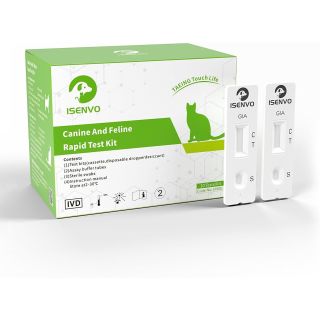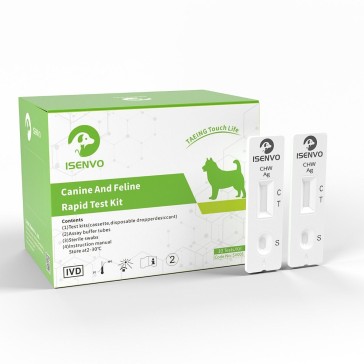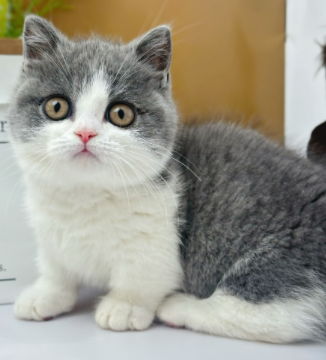What is Giardia?
Giardia (often abbreviated as GIA) is a microscopic intestinal parasite that infects cats, dogs, and even humans. Unlike a virus, Giardia exists in a hardy cyst form and spreads through contaminated water, soil, or feces. Pets become infected by ingesting these cysts, leading to gastrointestinal issues.
Health Risks of Giardia in Pets
Infected cats and dogs may show the following symptoms:
1. Digestive Issues
-
Intermittent or chronic diarrhea (soft, watery, sometimes with mucus or blood)
-
Vomiting (more common in puppies and kittens)
-
Loss of appetite and weight loss
-
Bloating and abdominal discomfort
2. Other Complications
-
Dehydration (due to prolonged diarrhea)
-
Malnutrition (parasites interfere with nutrient absorption)
-
Secondary bacterial infections (from damaged intestinal lining)
Note: Some pets may carry Giardia without symptoms but can still spread it to other animals or humans (zoonotic risk).
How to Prevent Giardia Infection?
1. Maintain Cleanliness
✅ Promptly remove feces – Giardia cysts can survive weeks in the environment.
✅ Disinfect regularly – Use bleach solutions (1:32 dilution) or pet-safe disinfectants on floors, bowls, and litter boxes.
✅ Avoid contaminated water – Prevent pets from drinking from puddles, ponds, or untreated streams.
2. Strengthen Pet Health
✅ Regular deworming – Consult your vet for anti-parasitic medications (e.g., fenbendazole, metronidazole).
✅ Boost immunity – Feed a balanced diet and consider probiotics for gut health.
✅ Quarantine new pets – Isolate newcomers for 1–2 weeks to monitor for infections.
3. Minimize High-Risk Exposure
Prevent sniffing/licking feces – Be cautious during walks or in multi-pet households.
Avoid raw food/unfiltered water – These may harbor parasites.
What If Your Pet is Infected?
-
Seek veterinary care – Diagnosis via fecal tests; treatment typically includes antiparasitic drugs.
-
Isolate the pet – Prevent spread to other animals or humans.
-
Disinfect thoroughly – Wash bedding, toys, and bowls with hot water (>60°C) or disinfectants.
-
Monitor recovery – Retest feces post-treatment to ensure complete eradication.
Conclusion
Giardia is a common but manageable intestinal parasite in cats and dogs. Prevention relies on hygiene, clean water, and regular deworming. If symptoms arise, early veterinary intervention is key to a quick recovery.
A healthy pet starts with a vigilant owner!










Validate your login